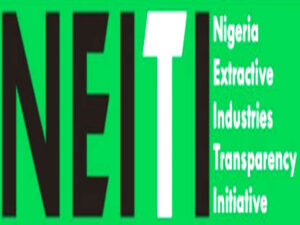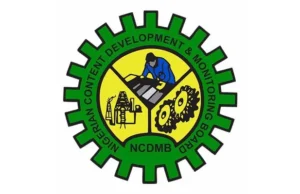New refinery deals raise hopes on supply
NCDMB acquires 20% stake in 100kbpd refinery
Dangote, NNPCL vie for market shares
Average savings from the ongoing new price discovery retail end of the Premium Motor Spirit (PMS), otherwise known as petrol, could exceed N113 billion monthly, providing a headroom for household’s disposable incomes.
The Nation’s market intelligence at the weekend indicated that retail petrol consumers may be saving nearly N3.8 billion daily, with total savings in a month estimated at more than N113 billion.
The analysis based on average daily petrol consumption of 50 million litres indicated by the Nigerian Midstream Downstream Petroleum Regulatory Agency (NMDPRA) and price changes by the two main petrol suppliers-Dangote Petroleum Refinery and Nigerian National petroleum Company (NNPC) Limited.
Dangote Refinery, which had been retailing petrol at N925 per litre, had twice last month reduced its ex-depot price to reduce retail pump price to N860 per litre.
NNPCL, which had been retailing petrol at N945 per litre, followed the competition, dropping its retail price across its stations to N860 per litre.
The prospects for petrol supply also received a major boost at the weekend as Nigerian Content Development and Monitoring Board (NCDMB) sealed a deal to acquire 20 per cent equity in a 100,000 barrels per day (bpd) refinery project being established by African Refinery Group Ltd, in partnership with the Nigerian National Petroleum Company (NNPC Ltd).
The share purchase agreement for the investment makes NCDMB a key partner in the African Refinery Port Harcourt Limited (ARPHL), being co-located with Port Harcourt Refining Company Limited, operated by the NNPC Ltd, in Alesa Eleme, Rivers State.
Analysts said they expected the equilibrium pricing and additional supplies from private sources could see further decline in retail petrol prices. Oando had earlier signed a deal to acquire a refinery in Trinidad and Tobago.
Chief Executive Officer, Center for the Promotion of Private Enterprise (CPPE), Dr. Muda Yusuf, said the ensuing pricing efficiency was a good one for the Nigerian people as it has freed up more disposable income for them.
He further explained that it represents one of the major gains inherent in deregulation.
The reduction in the price of petrol, he explained, is no doubt a major relief to both households and the masses in particular because energy cost is one of the biggest cost challenges that both the citizens and businesses are facing.
“So this reduction is quite remarkable and the expectation or the hope of many of the citizens is that the price will even go down even further because it is when we get to that point that the citizens can now begin to feel that the impact of the reforms is beginning to bring relief.
“2024 was quite challenging and our hope is that by 2025 the dividend of those reforms, the dividend of those sacrifices that we have made in 2023 up until 2024 will begin to manifest in 2025 and we are beginning to see these implications.
“So the drop in price of petrol is one of those manifestations of the dividend or the benefits of the reforms,” Yusuf said.
While the CPPE boss agreed that there are global factors driving this price reductions, he nonetheless hinted that there are also domestic factors influencing the price slash, induced by the several dysfunctional policies in the oil and gas sector as well as in the foreign exchange market, which have been removed substantially.
“These policies are bringing some efficiency into the market system and it is beginning to bring some normalcy into the overall economic management; so it is a welcome development. It is something that many of us commend and hope that it will go down further. Closely related to this is the fact that we are beginning to see stability in the foreign exchange market; this is also another remarkable development which is of course in some ways impacting on the dropping or the declining and stability in energy prices especially petroleum products.
“So I think the trajectory is quite positive and I hope the government will continue to address this critical issues which impact on the welfare of the citizens. We expect to see this also being replicated in cooking gas for instance, diesel, in aviation fuel, we like to see deliberate policy to make this happen, because energy price and exchange rate are the two biggest issues we have had in the last one year,” Yusuf, an economist, submitted.
He nonetheless cautioned that the evolving competition in the pricing regime must be between producers and not producers and importers for it to be a fair competition.
“The competition will be healthy if it is between producers and not between producer and importer. Definitely, this will be counterproductive in the end because it would have given an undue advantage to one of them. It will be like a textile manufacture here in Nigeria competing against a textile importer from China. It won’t be a fair competition because the cost environment will not the same; so there has to be a level playing field,” Yusuf said.
Executive Secretary of NCDMB, Engr. Felix Omatsola Ogbe signed the 100,000 refinery deal at the Board’s liaison office in Abuja, while the Managing Director, African Refinery Port Harcourt Limited, Mr. Tosin Adebajo signed on behalf of the company.
Ogbe said that the equity investment was the first to be sealed under his leadership.
He confirmed that the Board subjected the proposal through rigorous technical, commercial and regulatory reviews and decision gates, in line with NCDMB’s Commercial Ventures Investment Policy. The ES said the Board had also instituted a robust corporate governance procedure that would safeguard its investment and ensure optimal performance of the refinery project, he added.
The deal is part of the Board’s commercial venture programme, which is supported by Section 70 (h) of the NOGICD Act, where NCDMB is charged to “assist local contractors and Nigerian companies to develop their capabilities and capacities” in furtherance of Nigerian content development in the oil and gas industry.
The Board’s commercial venture investments are also geared to catalyze Federal Government’s strategic policies, provide job creation opportunities in the construction and operation phases, and add value to the nation’s hydrocarbon resources.
The shares for the African Refinery Port Harcourt Limited project were purchased under the Nigerian Content Intervention Company LTD/GTE, a company limited by guarantee, and wholly owned by the NCDMB.
Details of the investment indicate that the Nigerian National Petroleum Company Limited (NNPC Ltd) holds a 15 per cent equity investment in the refinery project, having executed a share subscription agreement in 2024.
The promoters of the project, African Refinery Group had in 2016 won a competitive bid to co-locate a crude oil refinery within the site of the Port Harcourt Refinery Complex (PHRC), and it executed an agreement to run and operate a 100,000 BPD refinery on 45 hectares of vacant land within the battery limit of the refinery complex.
The company also signed a sub-lease agreement with NNPC in 2019, giving her a 45.466 hectares within the refinery complex for a tenure of 64 years.
According to the investment plan, NCDMB will divest from the refinery at the end of the seventh year, counting from the commercial operations date.
Some of NCDMB’s investments in refining of petroleum products include the Waltersmith 5000 barrels per day (bpd) modular refinery located at Ibigwe, Imo State, Azikel group’s 12,000 barrels per day (bpd) hydro-skimming modular refinery, at Gbarain, Yenagoa, Bayelsa State and Duport Midstream’s 2,500 bpd modular refinery at Egbokor, Edo State, and they are at different levels of operations and development.
The Board’s investment with Waltersmith modular refinery was executed in 2018, and it served as the proof of concept. It operates optimally and provides refined petroleum products to its environs, creating hundreds of direct and indirect job opportunities.
The project is also a commercial success, as the holding company, Waltersmith Refinery and Petrochemical Company Limited, posted a profit-after-tax of N23.6 billion in April 2024, for the year 2023, and total dividend of N4.5bn, pending final approval at the Annual General Meeting (AGM).
NCDMB holds 30 per cent share in the company, and it received an interim dividend payment of N450 million out of the N1.5bn that was declared for the year ended 2023.





